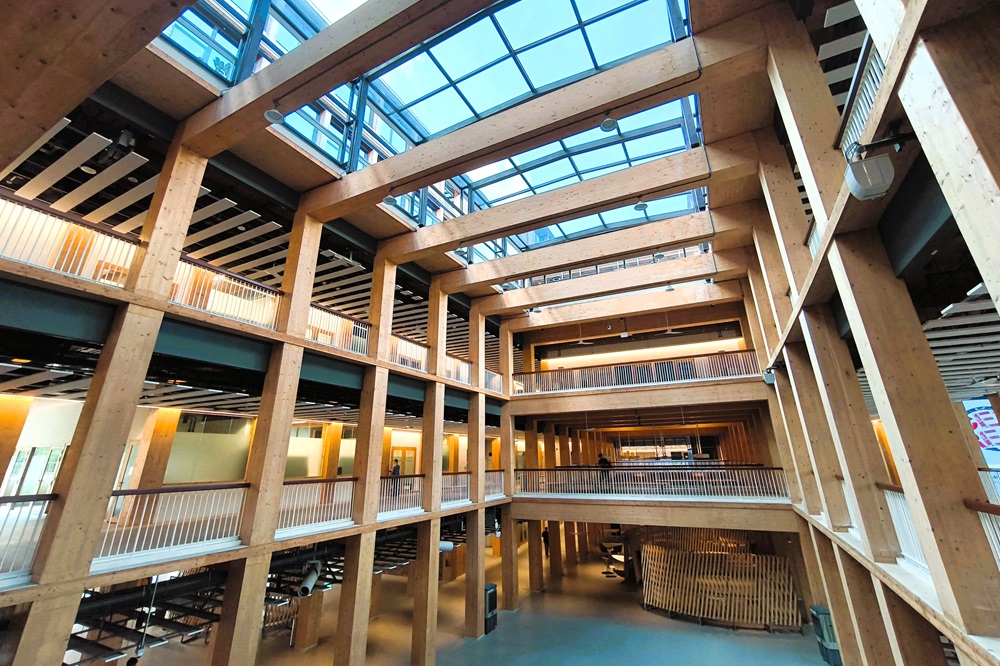Independent experts: mould issue at Gaia due to condensation and rain, not the timber

Gaia, which is constructed from Mass Engineered Timber (MET) and located at NTU Singapore, was recently reported to have issues of mould in some rooms and on the exterior of the building.
Two independent experts assessed the building this week and concluded that condensation and exposure to rain were the primary causes of the mould issue at Gaia.
Associate Professor Tham Kwok Wai, a global expert in Indoor Air Quality, Ventilation, and Engineering Control for Mitigation of Airborne Disease Transmission, said that the MET used in Gaia’s construction did not contribute to the mould growth, as the timber meets certified regulatory standards and is treated with protective sealants.
Associate Professor Shinya Okuda, an expert in the use of timber in buildings and an award-winning architect, agreed with this. Both professors are from the College of Design and Engineering at the National University of Singapore and were not involved in the Gaia project.
The mould was mostly found on the air-conditioning supply grilles and furniture surfaces in the affected rooms. Condensation occurs when the external humid air comes into contact with cooler indoor surfaces, such as when windows and doors of the offices are opened for prolonged periods.
Assoc Prof Tham added that mould is pervasive in Singapore due to its warm tropical climate and can grow on any surface if the environment is conducive, such as in dark, damp, and poorly ventilated areas.
He recommended several sustainable maintenance approaches, all of which NTU has accepted and will implement.
NTU Chief Development & Facilities Management Officer, Mr Siew Hoong Kit, said that the health and well-being of the NTU community are paramount and the University is committed to address the mould issue in Gaia through daily cleaning, periodic maintenance, and mould remediation efforts.














/enri-thumbnails/careeropportunities1f0caf1c-a12d-479c-be7c-3c04e085c617.tmb-mega-menu.jpg?Culture=en&sfvrsn=d7261e3b_1)

/cradle-thumbnails/research-capabilities1516d0ba63aa44f0b4ee77a8c05263b2.tmb-mega-menu.jpg?Culture=en&sfvrsn=1bc94f8_1)






